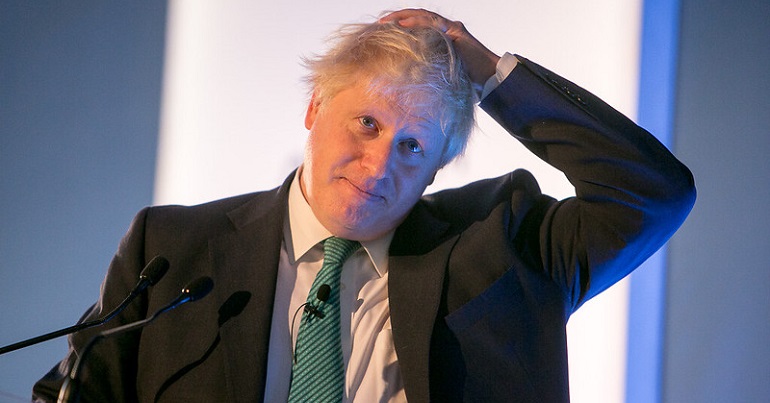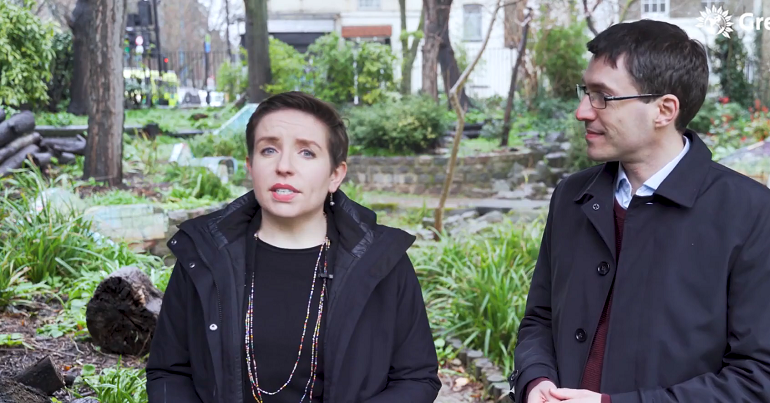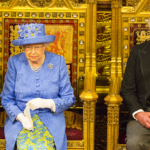The myth of British exceptionalism has driven the inept response to coronavirus

We are seemingly becoming used to dramatic and disturbing headlines on a daily basis during the coronavirus pandemic. Reported deaths in the UK from Covid-19 have risen to over 10,000, with daily numbers rivaling the worst hit parts of Europe. Actual numbers of deaths are likely to be higher than these figures as those who have died at home or in care homes are not yet included. Even the Prime Minister himself has had a close brush with the virus, spending two days in intensive care following a period of self-isolation.
The economic impact of Covid-19 is biting. Despite a fiscal response that took many aback when announced by Chancellor Rishi Sunak, huge numbers of small businesses are struggling and will fold. Those who have lost their jobs and are grappling with rent payments will be facing tremendous hardship in coming weeks and months.
This picture is startling and something we must not downplay as merely the effect of a hyper-infectious virus which we can do little to control. Whilst we do not currently have a cure for coronavirus, there are steps that the UK government could have taken quickly to limit its impact.
The outbreak of cases in Italy in February brought home the infectiousness and danger of the coronavirus to the whole world. Britain had this chance to recognise the danger and take steps to mitigate against the worst effects of the virus. Despite having an initial warning from the spread of cases across Europe, the UK government decided on a different approach to the vast majority of the rest of the world.
The government, the Downing Street Press Office, the Conservative Party and large parts of the media are doing their best to wipe the so-called “herd-immunity” strategy from the history books. But there clearly was a step change in March from playing down the severity of this crisis to a lockdown, all within a matter of days.
An illuminating piece in Reuters on the 7th of April starts to seemingly show an explanation. This article, picked up by left-wing media organisation Novara Media, details how many scientists recognised the monumental impact that the coronavirus may have on the UK, yet, the government dragged its heels in coming up with a suitable response:
Interviews and records published so far suggest that the scientific committees that advised Johnson didn’t study, until mid-March, the option of the kind of stringent lockdown adopted early on in China, where the disease arose in December, and then followed by much of Europe and finally by Britain itself. The scientists’ reasoning: Britons, many of them assumed, simply wouldn’t accept such restrictions.
The article continues:
As they watched China impose its lockdown, the British scientists assumed that such drastic actions would never be acceptable in a democracy like the UK. Among those modelling the outbreak, such stringent counter-measures were not, at first, examined.
In early March there was still little sign of concern in Government. On the 12th of March, Boris Johnson gave a bizarre address where he warned the country that many of our family members would die. Just a day later Patrick Vallance, the government’s chief scientific adviser, talked about controlling the pace of the infection. Here is where the “herd immunity” strategy was still the priority. Within a week, businesses were closing, sport events were being cancelled and workplaces were implementing alternative arrangements on their own accord.
Eventually the Government caught up. After seeing modelling predicting deaths in the hundreds of thousands if nothing changed, they heeded the public mood and sought to lock the country down.
Throughout these events, a particular form of British exceptionalism underpinned thinking. This is not an attack on the scientists and it is impossible to say that the perfect response would have been one approach over another. But what is clear is that the framework in which the scientists, and all of us, work within has been set by government, the media and by a form of thinking that is prevalent throughout the corridors of power: Britons are special because we love our freedom just too much.
We must be critical of this framing of discussions in late February and early to mid March by our government. By this time, it was clear that a humanitarian disaster was unfolding in Italy. Spain was not far behind and cases were prevalent throughout France, Germany and the rest of Europe. Where the UK delayed others acted; shutting down non-essential travel and enforcing social distancing in order to “flatten the curve”, preventing deaths and supporting health services.
Despite this unfolding in front of our eyes, it took people themselves, businesses and institutions, to act for the government to follow suit. This exposes the outdated and arrogant take on British liberalism where government thinking simply couldn’t comprehend taking the necessary measures to tackle the virus.
Those who have accused the government of pursuing economic growth over human welfare are right. This interpretation of British liberty, rivaled only by that of the United States, is intrinsically linked to our pursuit of economic growth and prosperity: we are just too entrepreneurial and business minded to accept any break on the economy.
Implicit within the idea is a kind of hierarchy of nations. Other countries, even democracies in Europe, are willing to sacrifice their freedom whereas we Brits, of course the inventors of modern liberal democracy, cannot be pinned down. Meanwhile, explanations like, ‘the Germans do what they are told’ and ‘Spain and Italy used to be dictatorships’ pass for meaningful political analysis.
The implications of this attitude are twofold: underpinning our state is a kind of neo-colonial self-congratulatory attitude, and we are willing to sacrifice our family and friends on the altar of a peculiar form of liberal ‘freedom’.
Is this really surprising from what we have seen over the last ten years? Conservative-led governments have defended an economic system rather than the most vulnerable. Austerity economics was the defence of the City of London, shifting the burden of the 2008 financial crisis onto working class people. During the 2019 Conservative leadership election, Boris Johnson proudly asked; “Can you think of anyone who has stuck up for the bankers as much as I did?” Toxic migrant bashing and the hostile environment has been a common political game adding a racial element to British exceptionalism and covering for failures in government policy.
It has taken the public to act to show those in power who hold this view how wrong they are. We care about our friends, family and neighbours and will do what we can to save them. Mutual Aid groups are supporting vulnerable people across the country, the NHS volunteer programme reached its target number within hours and key workers are being applauded on a weekly basis for the amazing job that they do.
After this crisis, we have to fully examine our response to the coronavirus. What could we have done to save as many as possible? It is clear that despite being warned by events on the continent, the corridors of power couldn’t comprehend taking action to save as many people as possible when it was needed. This is a manifestation of an outdated and extreme view of British exceptionalism that is prevalent in our political class. We cannot forget the complacency and delay and the devastating effect this will have on families across the country.
After coronavirus, this is all the more reason to fundamentally overhaul our political system to bring ordinary people into parliament, the governance process and create a country for ordinary people and not an outdated elite.
Image credit: Chatham House – Creative Commons




Leave a Reply